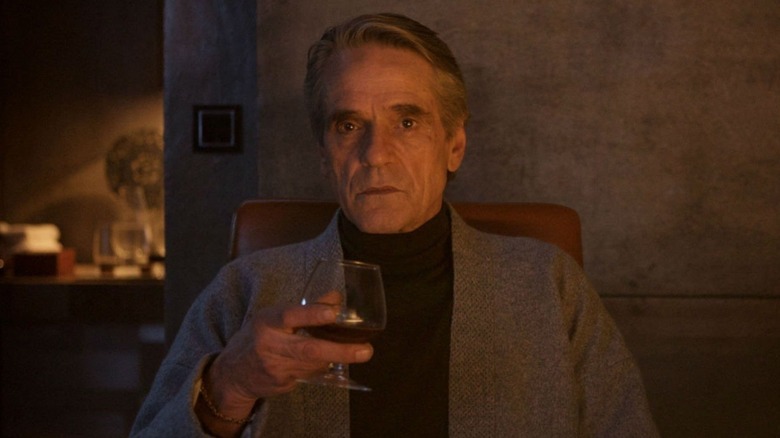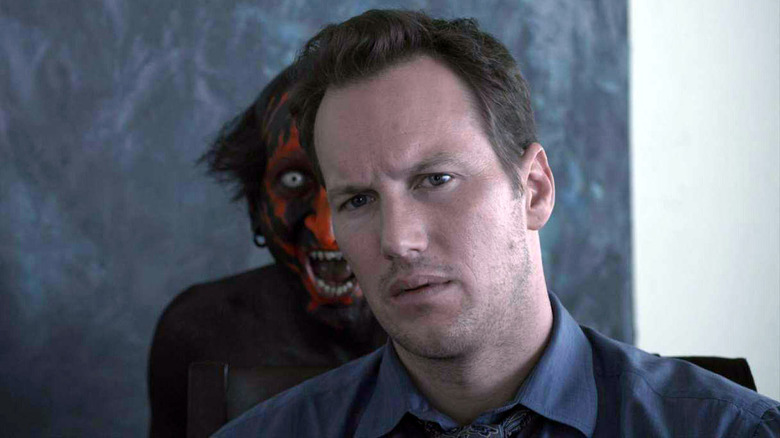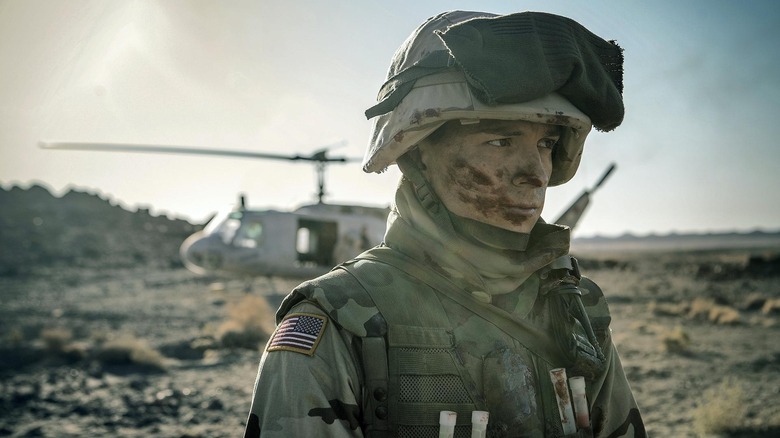Darren Lynn Bousman's Upcoming Horror Movie, Cello, Starring Jeremy Irons And Tobin Bell Has Wrapped Production
Darren Lynn Bousman is known by many as the director behind much of the "Saw" franchise ("Saw II, III, IV," and "Spiral: From the Book of Saw"), the horror musicals "Repo! The Genetic Opera," and "The Devil's Carnival," as well as the immersive events like "The Tension Experience" and "One Day Die." His latest project, a horror movie titled "Cello" starring Jeremy Irons and Tobin Bell, has wrapped production in Saudi Arabia and the Czech Republic. The film is written by Turki Al Alshikh, the Chairman of General Authority for Entertainment in Saudi Arabia and the Chairman of the Islamic Solidarity Sports Federation, who also wrote the book the film is based on. The completion of "Cello" marks the beginning of a trend of English-language projects planning on filming in Saudi Arabia.
In the official press release for the project, Director Darren Lynn Bousman stated:
"I have been blessed to have many adventures in my filmmaking career. None have compared to the production of 'Cello.' I was able to traverse the globe, and work with an international cast and crew. I am excited for the world to see this terrifying tale from the mind of Turki Al Alshikh and am humbled to have had a small part in its creation."
The story follows an aspiring cellist who learns that the cost of his brand new cello is far more insidious than he first thought. Irons and Bell are joined by Syrian actor Samer Ismail ("The Day I Lost My Shadow," "On Borrowed Time") and Saudi actress Elham Ali ("Ashman," "Zero Distance").
Who Else is Working on Cello?
Lee Nelson of Envision Media Art is producing the film, and "Cello" is executive produced by Sultan Al Muheisen and Niko Ruokosuo from Alamiya and David Tish ("The Ice Road," "Mr. Church") from Envision Media Arts. The film was financed by Rozam Media, which also owns all rights to the film. Raul Talwar is serving as an associate producer.
"Cello" was shot by Maxime Alexandre ("Shazam!," "The Haunting of Bly Manor"), is being edited by Harvey Rosenstock ("Homeland," "Scent of a Woman," "Kiss the Girls"), and will feature a score from iconic horror composer, Joseph Bishara ("Insidious," "The Conjuring").
The top-secret project is currently seeking distribution and plans to premiere on the festival circuit in 2022.
What Does This Mean for Hollywood's Future in Saudi Arabia?
In 2017, Saudi Arabia lifted a 35-year-old religion-related ban on cinema and has since become the Middle East's top-grossing territory in terms of theatrical box office returns. However, that cinematic boom came to a halt in 2018 after journalist and Washington Post columnist Jamal Khashoggi was assassinated. Khashoggi's murder compounded with the human rights issues that exist in Saudi Arabia has made this step a controversial one, with many believing the U.S. should have zero dealings with Saudi Arabia.
Many Hollywood deals made prior to the assassination were abandoned after Khashoggi's death, but it seems as if many of those deals are slowly resurfacing. Edouard Waintrop, the new artistic director of the Red Sea International Film Festival, Saudi Arabia's upcoming inaugural film festival, told Variety in July that he accepted the position under the stipulation that Arab films would not be censored. He stated that "if movies are made it will change many aspects of society" in Saudi Arabia, especially in regard to the treatment of women.
Jeremy Irons is also already linked to another upcoming Saudi-based project, a documentary shooting in the Al-'Ula region for the Discovery Channel. Gerard Butler's upcoming film, "Kandahar," is also set to begin production in the area later this month, which will be one of the biggest English-language projects to shoot in the country.
Why Shoot in Saudi Arabia?
In recent decades, only a handful of major English-language films have been shot in Saudi Arabia, with The Russo Brothers' "Cherry" being the most recent mainstream offering. "Cello" is the first step in what looks to be a profitable trend for Hollywood, but it also brings up the moral issues of accessibility to employment for non-men on film sets. Part of the Saudi Vision 2030 incentive to reduce Saudi Arabia's dependence on oil, diversify its economy, and develop public service sectors such as health, education, infrastructure, recreation, and tourism, includes improving women's rights, as the country currently practices male guardianship.
Earlier this year at the Cannes Film Festival, Saudi officials were encouraging people to film in the Al-'Ula valley. They were also promoting brand new production facilities and the country's whopping film and television tax rebate rate of 35%, which matches the highest percentages offered by some areas in the United States. It begs the question of the motivations behind this impending wave of English-speaking films being made in the country, and whether or not the decisions are based on a genuine desire for progressive influence or just another act of foregoing moral standards in the name of capitalism.



